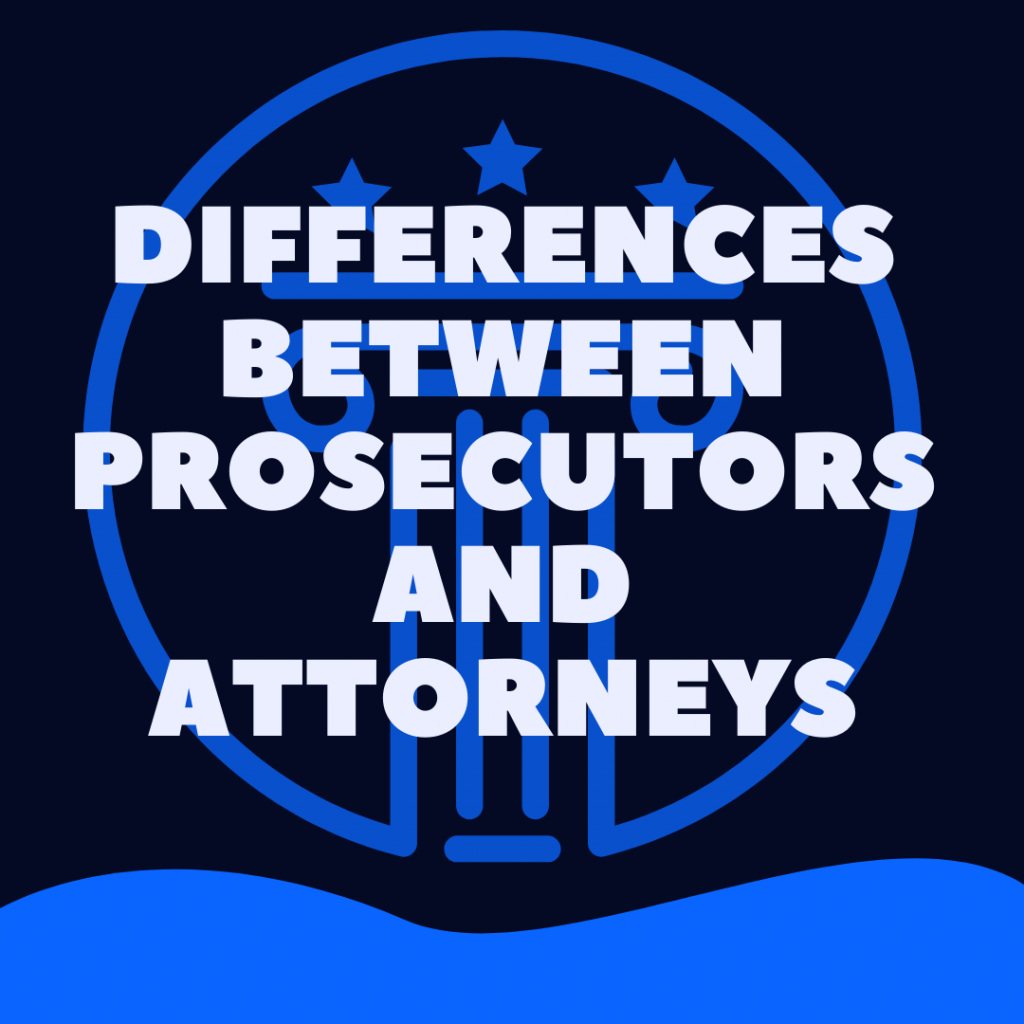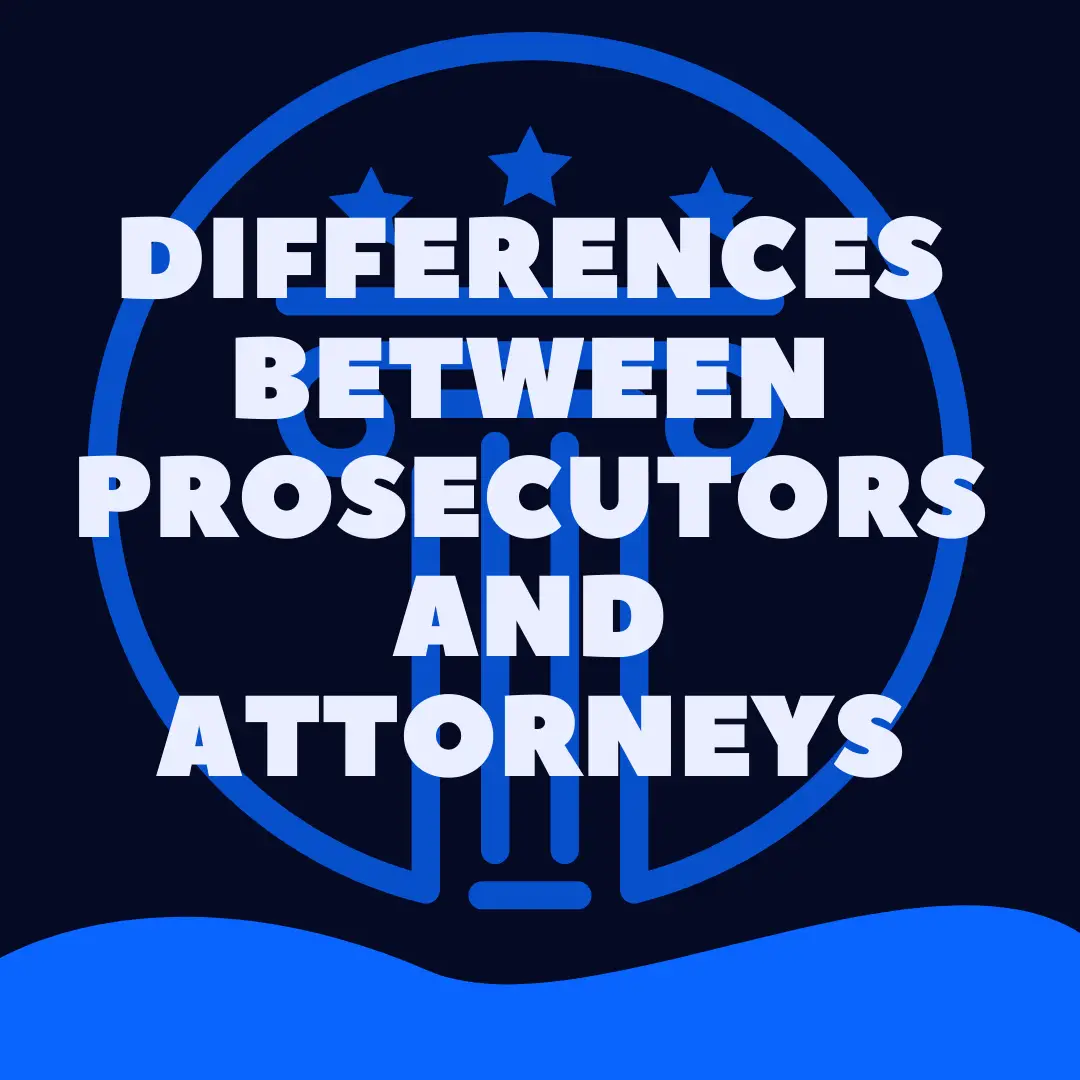All prosecutors are attorneys, but not all attorneys are prosecutors.
In the article that follows, we’ll explain.
Differences Between Prosecutors and Attorneys (EXPLAINED)
Disclaimer
The contents of this web page are for informational purposes only, and nothing you read is intended to be legal advice. Please review our disclaimer about law/legal-related information on this website before taking action based upon anything you read or see.
What Is A Prosecutor?
A prosecutor is a specific kind of lawyer, who takes on the job of enforcing the law utilizing the court system.
In fact, most prosecutors are considered law enforcement officers, even though they are not police officers.
Prosecutors may be appointed, elected, or even just plain ol’ employed by the government.
Prosecutors also work on contract for some government entities, while also continuing to work in private practice.
A prosecutor reviews cases forwarded to their office by police and private citizens, and makes the decision about whether a defendant should be charged with a crime.
In most cases, the prosecutor decides what crimes the defendant will be charged with, though with felonies and other serious crimes the grand jury will review the case and make charging decisions as well.
The prosecutor then shepherds the case through court, making decisions about resolving the case with a plea through negotiations with the defense, or taking the case to trial to try and prove the elements of the crime beyond a reasonable doubt to the judge or jury.
We know of no prosecutorial position in the United States which allows a non-lawyer to hold the role of prosecutor.
What Is An Attorney?
An attorney is a person who, in a specific state, has met all of the requirements to become licensed and practice.
In general, the requirements are that the attorney has obtained sufficient education (usually a Juris Doctorate), and taken/passed the state’s bar examination.
Most states also have additional requirements, such as a number of personal or professional references, a clean criminal record, and can pass a character examination.
An attorney is a person who, once licensed, can assist clients with matters requiring legal expertise.
The practice areas an attorney can assist with are limited only by his experience and expertise, though some practice areas require additional certifications (like the Patent Bar Exam).
For example, an attorney could assist with divorces, preparation of wills, stalking protective order defense, car crashes, slips and falls, harassment, contacts, and more.
How Are Prosecutors and Lawyers Different?
As we said above, prosecutors are lawyers.
But the prosecutorial role is a very special one.
People can’t just open up an office down the street and start prosecuting cases.
The prosecutor’s role is one given to him or her specifically through their relationship (elected, appointed, employed) with the government entity.
But in the day to day matters, being a prosecutor being a lawyer doing any other kind of work is not terribly different.
Prosecutors and non-prosecutors both:
- review the facts of many cases
- review and study the applicable law in a case
- prepare and analyze the facts in accordance with the applicable law
- make judgment calls about what to do with a case (try to settle it, or take it to trial)
- prepare for trial
- write motions
- interview witnesses
- work with professional expert witnesses
- talk to parents and family members
- write emails and make telephone calls
- appear in court
- wear a suit to work
- manage legal assistants and support staff
- supervise junior attorneys
- attend continuing education presentations and seminars
- become judges
- plan for retirement
The primary difference is just the prosecutor’s client–the government entity (federal government, state, township, county, city, etc), while a non-prosecutor will likely have multiple clients at any given time.
Wrap Up
Want to learn more about your criminal justice system?
Browse our free legal library guides for more information.
You might also like:
- State Attorney vs District Attorney (Compared)
- Attorney General vs District Attorney (Compared)
- City Attorney vs District Attorney (Compared)
- Why Would a District Attorney Be Looking For Me?
- How Does a District Attorney File Charges?
- Can a Victim Talk To a District Attorney?
- Why Do Prosecutors Become Defense Attorneys?
- 5 Benefits of Plea Bargaining For Prosecutors
- When Does a Prosecutor Give Closing Arguments?
- How Do Prosecutors Get Paid?


